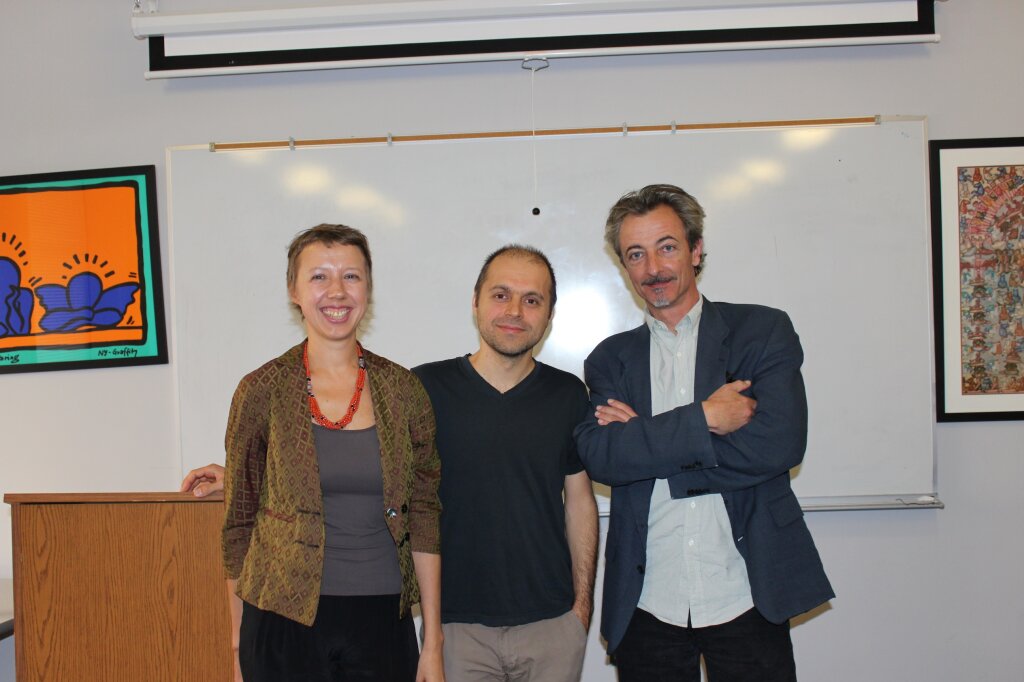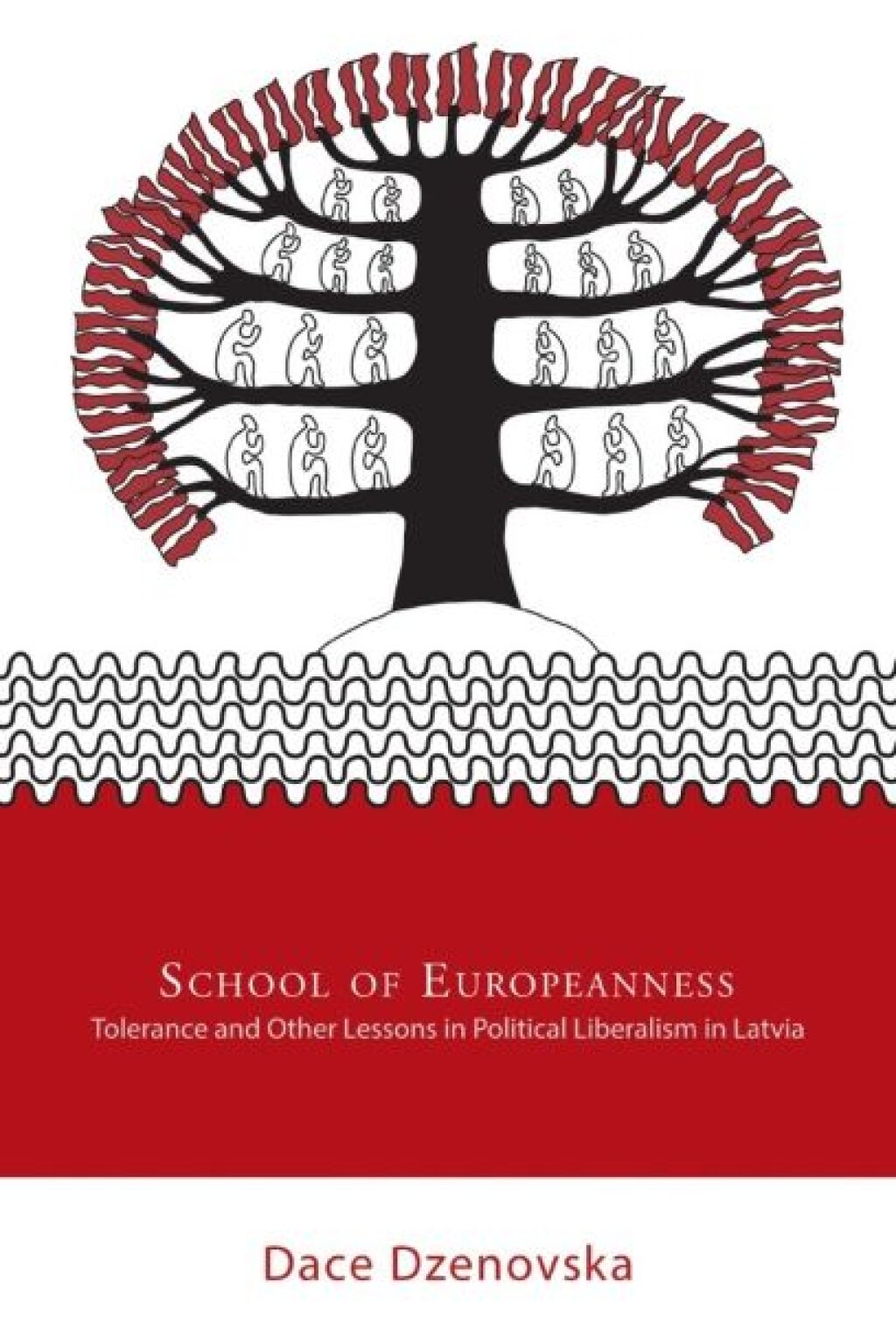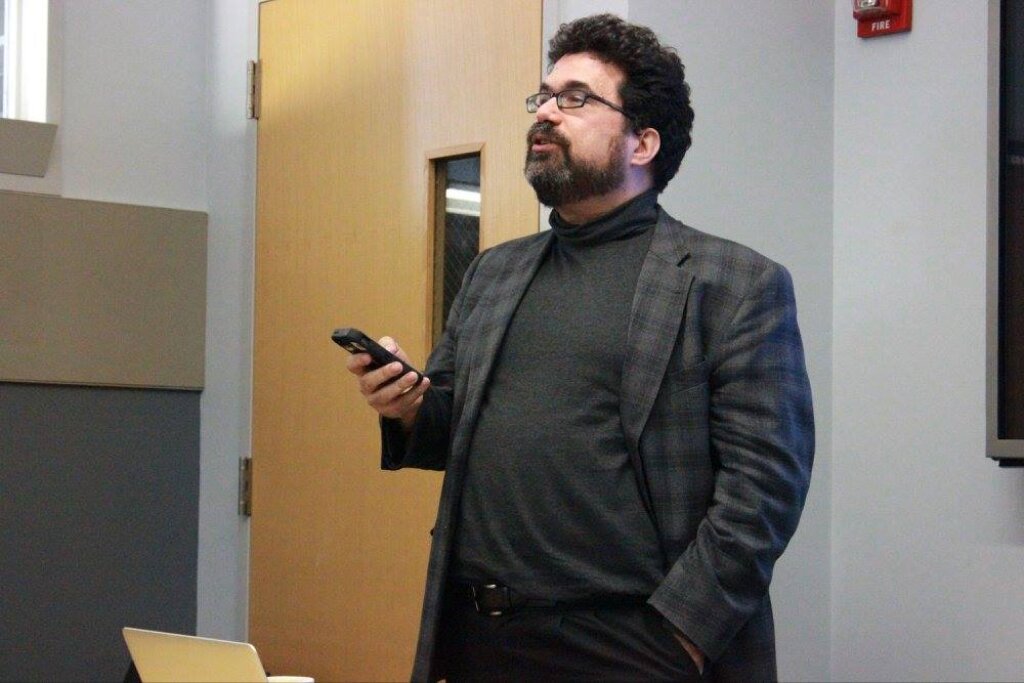Watch the video of the event here
Masha Salazkina, Associate Professor of Film and Research Chair of Transnational Arts and Culture from Concordia University in Montreal, spoke to guests of the Jordan Center on Friday regarding her ambitious collaborative research project of the history of the Tashkent Festival of Asian, African, (and later Latin American) Cinema.
Salazkina described the film festival, during its pinnacle years from 1968-1976, as a “transnational cinematic contact zone” between countries across the Asian, African, and South American continents. The non-competitive festival was unique in its commitment to maintaining a Utopian atmosphere of tolerance, regardless of political, cultural, or religious tensions between participants, filmmakers, and the Soviet Union. Whereas other Soviet film festivals had clear ideological and aesthetic constraints, Tashkent maintained political and cultural ambiguities. A wide variety of films were screened, both independent and commercial, and these included popular films competing at other festivals, as well as films that had no distribution beyond the Tashkent circuit.
Salazkina spoke to a collaborative research endeavor that, much like the festival, will be a transnational effort-- she is currently working with academics from throughout the world to uncover and analyze the events and films of the Uzbekistan-based film festival. And the subject certainly begs a team-approach—the festival ran nearly ever year from 1964 until the dissolution of the Soviet Union. In 1974, arguably the most ambitious year of the festival, filmmakers and critics from over 68 countries were represented, and 176 films were screened. Beyond considerations of the sheer magnitude of a project that would compile a comprehensive Tashkent film archive, Salazkina highlighted the multitude of additional potential research forays into the history of the festival, including critical reception of the films exhibited, audience reaction, reception of the films and festival-happenings in the filmmakers’ countries of origin, and the festival within the context of Uzbekistan.
Following the lecture and research outline, Salazkina moved the discussion to a Q+A with the audience. Some voiced curiosity about the types of films shown at the festival, and one member questioned the notion that the festival provided a zone of neutrality to its participants and members.
Given the expanse of the research project, Salazkina hopes to develop an alternative means of access to the findings on Tashkent, and suggested the possibility of an open-source, Internet-based research portal that would include archival footage of films featured at the festival. The potential for new information that will illuminate relations between the so-called third and second worlds is enormous. Salazkina’s project will certainly be one to keep an eye on as it develops.
photo: from left Masha Salazkina, Ilya Kliger, Yanni Kotsonis



